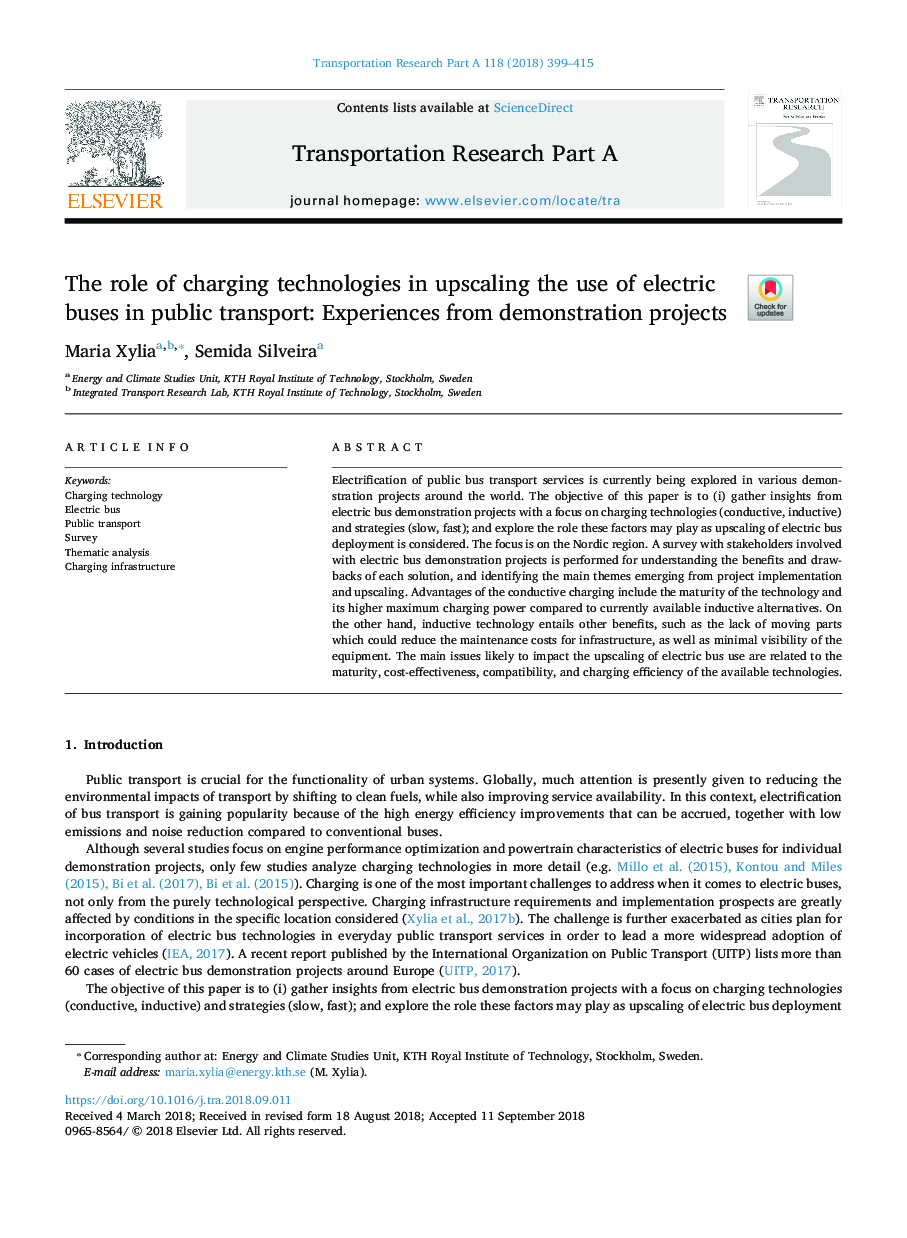| Article ID | Journal | Published Year | Pages | File Type |
|---|---|---|---|---|
| 11030174 | Transportation Research Part A: Policy and Practice | 2018 | 17 Pages |
Abstract
Electrification of public bus transport services is currently being explored in various demonstration projects around the world. The objective of this paper is to (i) gather insights from electric bus demonstration projects with a focus on charging technologies (conductive, inductive) and strategies (slow, fast); and explore the role these factors may play as upscaling of electric bus deployment is considered. The focus is on the Nordic region. A survey with stakeholders involved with electric bus demonstration projects is performed for understanding the benefits and drawbacks of each solution, and identifying the main themes emerging from project implementation and upscaling. Advantages of the conductive charging include the maturity of the technology and its higher maximum charging power compared to currently available inductive alternatives. On the other hand, inductive technology entails other benefits, such as the lack of moving parts which could reduce the maintenance costs for infrastructure, as well as minimal visibility of the equipment. The main issues likely to impact the upscaling of electric bus use are related to the maturity, cost-effectiveness, compatibility, and charging efficiency of the available technologies.
Related Topics
Physical Sciences and Engineering
Engineering
Civil and Structural Engineering
Authors
Maria Xylia, Semida Silveira,
